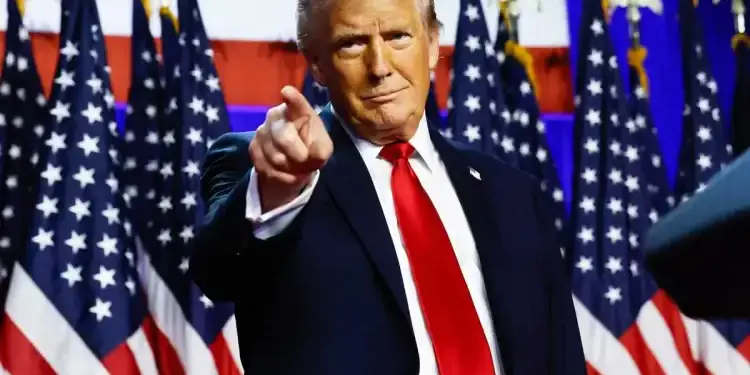Diplomats Nejib Hachana, Abdallah Labidi and Ahmed Ben Mustapha analyze the consequences of Donald Trump’s victory, in particular for the Middle East. Their prospects shed light on international relations, especially with Israel, Iran and the Gulf countries.
Analysis of former ambassador Nèjib Hachana
The diplomat and former ambassador in Washington, Nejib Hachana, shared his analysis on the waves of Mosaic FM concerning the repercussions of the election of Donald Trump in the White House. According to him, American interests will continue to dictate international policy, even under a republican president. The support of the United States in Israel, perceived as an “internal affair” for the Americans, should remain unchanged.
However, Hachana anticipates that tensions in the Middle East could evolve towards a relative period of peace, thanks to Trump’s privileged relations with the Gulf countries, notably Saudi Arabia and the United Arab Emirates. On the question of Iran and Russia, he provides more tense relations, with a policy of reducing Iranian influence in the region. In addition, Trump could envisage a “severe trade war” against China.
According to Hachana, Trump, having learned from his first mandate, will better manage economic relations and communication with the media, while retaining his direct and firm style. He plans that the world will experience “geopolitical changes” under Trump, who will seek to avoid new wars and ensure global stability.
Perspective of Ahmed Ben Mustafa
For Ahmed Ben Mustapha, diplomat and former ambassador, Trump was unusually conciliatory during his post-electoral speech, calling for the unity of the Americans, including minorities and Arab and Muslim communities. Ben Mustapha describes Trump as a pragmatic more focused on economic and internal issues than on foreign policy.
Ben Mustapha anticipates Trump’s more realistic approach to world events, including the Gaza conflict, although Benjamin Netanyahu, head of the Israeli government, has already expressed his enthusiastic support to Trump. Ben Mustapha recalls that Trump assured in his speech that he would avoid new wars, suggesting a desire for moderation in conflicts.
Ben Mustapha also underlines concerns in Europe after Trump’s victory, because of his positions on NATO protection, while Russia and the BRICS are reinforced, promoting a renewed balance in international relations. Finally, he thinks that Trump will adopt a less radical posture towards Iran and that he will favor a more nuanced policy in the Middle East, although the changes remain moderate.
Comments by Abdallah Labidi
For his part, former diplomat Abdallah Labidi said that, under Trump, the situation of the Palestinians “can only be worse” under the Democrats. According to him, Trump’s positive relations with Vladimir Putin and Saudi Crown Prince Mohammed bin Salmane could lead to de-escalation in the Middle East. Labidi also points out that Trump, as a businessman, will place the economic interests of the United States at the top of his priorities.








